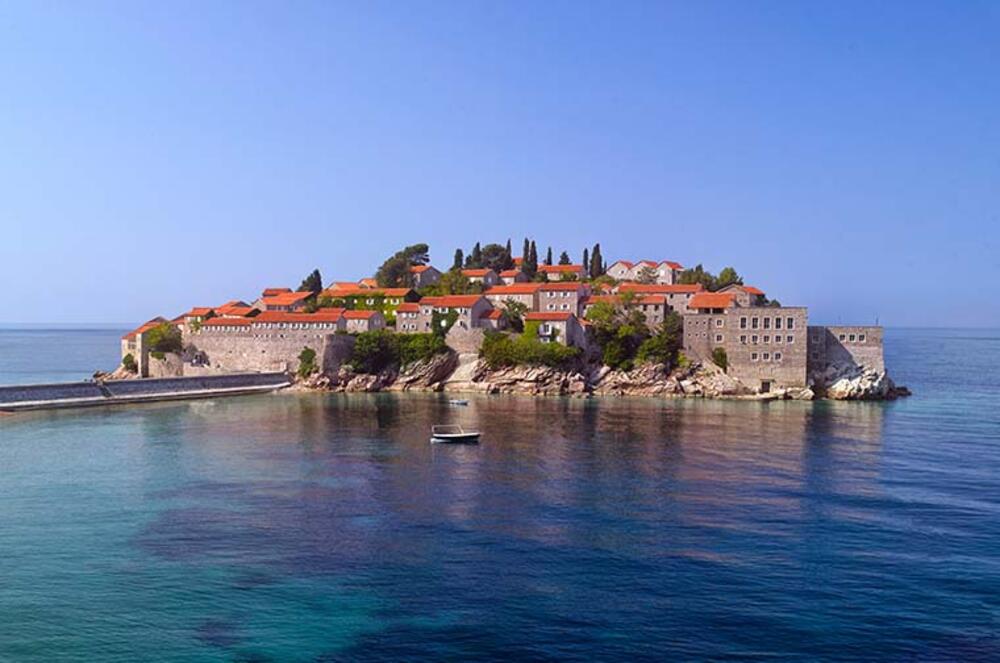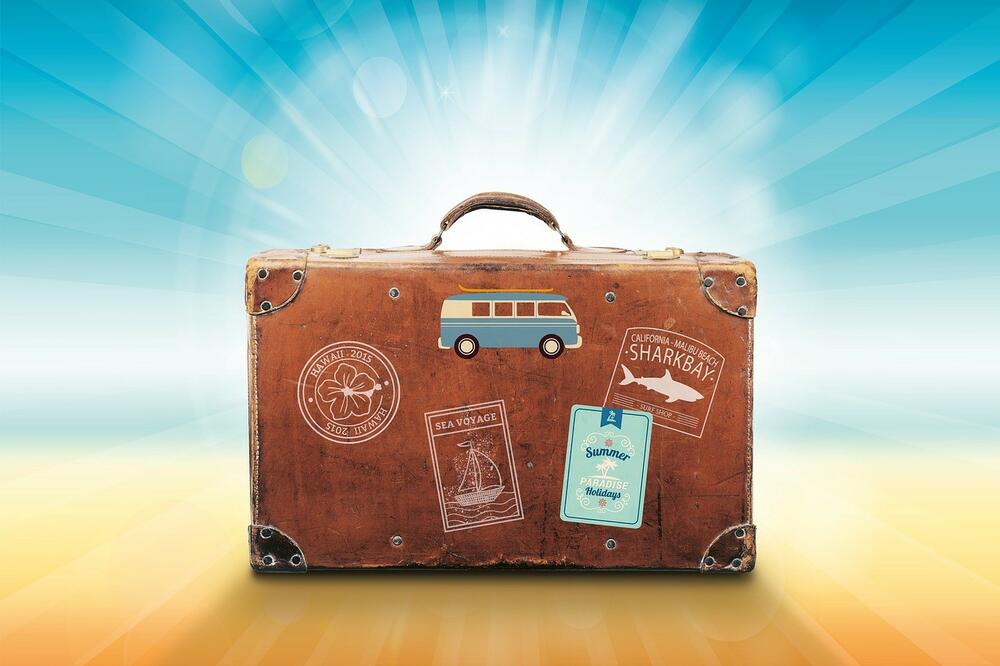Nestled between Croatia to the west, Bosnia and Herzegovina to the northwest, Serbia to the northeast, Kosovo to the east, and Albania to the southeast, Montenegro boasts a strategic location in the heart of the Balkans. With a population of around 620,000, the country is known for its diverse mix of ethnicities, including Montenegrins, Serbs, Bosniaks, Albanians, Croats…
Geography and Climate

Montenegro's stunning geography is like a painter's dream come true. From the breathtaking mountains of Durmitor National Park to the crystal-clear waters of the Bay of Kotor, there is no shortage of natural wonders to explore. The country enjoys a Mediterranean climate, with hot, dry summers and mild, wet winters. This combination creates a pleasing environment for both outdoor activities and relaxation. It is also a ‘logistic’ paradise since from the capital of Podgorica, you need max 1-2h to every coastal city and 1-3h to every mountain city, which makes it ideally positioned for exploring.
Language and Culture
The official language of Montenegro is Montenegrin, which is very similar to Serbian, Croatian, and Bosnian. English is commonly spoken in tourist areas, making it relatively easy for expats to communicate. In terms of culture, Montenegro has a vibrant heritage. Traditional music, dance, and art are deeply ingrained in the local culture, offering foreigners a unique opportunity to immerse themselves in the country's traditions.
Economy and Cost of Living
Montenegro is a developing nation that has made significant progress in recent years. Tourism and services account for a major part of the country's economy, and investment opportunities are available in sectors such as real estate, construction, IT and renewable energy. The cost of living in Montenegro is relatively affordable compared to Western European countries, making it an attractive destination for expats seeking a good quality of life at a lower cost. The average monthly rent in Podgorica is between 300-500 euros for a 2-bedroom apartment. Prices vary depending on cities – on the coastline, it gets a bit pricier, while in the north cheaper. The average restaurant meal is between 7-15€ per person while the costs of food at supermarkets can vary. https://en.vijesti.me/tag/202/fuel-prices
The price range for various food items in Montenegro is as follows:
Bread (white, per loaf) – from 0.80 euros
Milk (1 litre) – from 1.45 euros
Eggs (12) – from 2.19 euros
Rice (1 kg) – from 1.45 euros
Chicken meat (per kg) – Approximately 9 euros
Beef meat (per kg) - Around €15.00
Cigarette packs - €3.00 to €5.00
Prices for fruits and vegetables are as follows:
Bananas (per kg) - €1.20
Apples (per kg) - €1.20
Tomatoes (per kg) - €1.6
Cucumber (per kg) - €1.
Onions (per kg) - €1.29
Potatoes (per kg) - €0.65 It's important to note that food prices may vary depending on where you shop, whether it's in local markets, retail stores, or large chain stores.
When it comes to drinks and alcohol:
Bottled water - Approximately €0.60
Mid-range wine (per bottle) - Around €4.00
Domestic beer - Approximately €0.90
Imported beer - Circa €1.20
For transportation within Montenegro:
Local transport (e.g., buses) - A one-way ticket costs about €1.00, and a monthly pass is approximately €30.00.
Taxi prices vary based on the distance traveled, starting at around €1.00.
There are taxi services available for airport transfers, and the waiting cost is approximately €6.00.
Gasoline prices in Montenegro are subject to frequent updates. Currently, it is around 1.50 euros
Utilities in Montenegro:
Basic utilities include electricity, water, heating, cooling, and garbage removal. In apartments, these utilities are expected to cost around €100 per month, but for houses, expenses are higher.
Utility costs can vary based on the size of your residence, location, and city.
Moving to Montenegro: The Legalities
Before making the move to Montenegro, it's important to be aware of the legal requirements and procedures. This includes understanding the visa and residency requirements, buying property, and ensuring adequate healthcare and insurance coverage.

Visa and Residency Requirements
Foreigners planning to stay in Montenegro for an extended period must obtain a visa or residency permit. The country offers various visa options, including tourist, business, student, and work visas. It is advisable to consult with the Montenegrin embassy or consulate in your home country for specific requirements and guidelines.
Buying Property in Montenegro
As the tourism industry continues to grow, Montenegro has become an attractive destination for property investment. Foreigners can buy property in the country, but it's crucial to understand the legal procedures and regulations surrounding property ownership. Working with a reliable local real estate agent and lawyer is recommended to ensure a smooth and secure buying process.
Healthcare and Insurance
Access to healthcare is a crucial aspect of living in any country. In Montenegro, both public and private healthcare options are available. Expats are advised to obtain comprehensive health insurance to ensure they have access to quality medical services. It's also important to familiarize yourself with the local healthcare system and understand the procedures for seeking medical assistance.
Daily Life in Montenegro for Expats
Once you've settled into your new life in Montenegro, you'll find that there is much to enjoy and explore. From experiencing the local cuisine to engaging in social activities and ensuring your children's education, daily life in Montenegro offers a blend of opportunities and experiences.
Local Cuisine and Dining Out
Montenegrin cuisine is a delightful fusion of Balkan, Mediterranean, and Italian influences. Traditional dishes such as cevapi (grilled meat sausages), kačamak, pečenje ispod sača, prochutto and cheese, and seafood delicacies are a must-try. The country also boasts a thriving wine industry, with local vineyards producing excellent wines. Exploring the local cuisine and dining out at traditional restaurants will undoubtedly be a highlight of your experience in Montenegro.
Social Life and Entertainment
Montenegro offers a vibrant social scene, with bustling cafes, bars, and nightclubs in popular tourist destinations like Budva and Kotor. During the summer months, numerous festivals and events take place, ranging from music and arts festivals to traditional celebrations. Engaging in the local social life and immersing yourself in cultural events will provide an enriching experience.
Education and Schools
If you're moving to Montenegro with children, you'll be pleased to know that the country has a decent education system. International schools are available in cities like Podgorica and Tivat, offering education programs in English and various other languages. It's important to research and choose a school that aligns with your children's educational needs and preferences.
Working in Montenegro as a Foreigner
Montenegro offers diverse opportunities for foreign nationals looking to work or start a business in the country. Understanding the job market, business requirements, and work culture will help you navigate the professional landscape more effectively.
Job Market Overview
The job market in Montenegro is primarily focused on sectors such as tourism, hospitality, real estate, and IT. English-speaking professionals may find opportunities in language teaching, translation services, and international organizations. It's important to research the job market and understand the specific skills and qualifications that are in demand.
Starting a Business in Montenegro
If you have an entrepreneurial spirit, starting a business in Montenegro can be an exciting venture. The country offers favorable conditions for foreign investment, with a simplified registration process and various incentives for startups. Partnering with local experts and understanding the legal and financial aspects of business ownership are crucial for success. You can find more info on this link
Work Culture and Etiquette
The work culture in Montenegro is a blend of professionalism and a laid-back Mediterranean lifestyle. Punctuality and respect for hierarchy are valued, but at the same time, there is a strong emphasis on work-life balance. Building relationships and networking are essential, so investing time in getting to know your colleagues and business partners can be beneficial.
In conclusion, living in Montenegro as a foreigner offers a unique opportunity to immerse yourself in a vibrant culture and stunning natural beauty. From navigating the legalities and settling into daily life to exploring the job market and starting a business, Montenegro provides a welcoming and enriching environment for expats. Whether you're looking for a tranquil seaside retreat or an exciting career opportunity, Montenegro has something to offer for everyone.
Bonus video:





